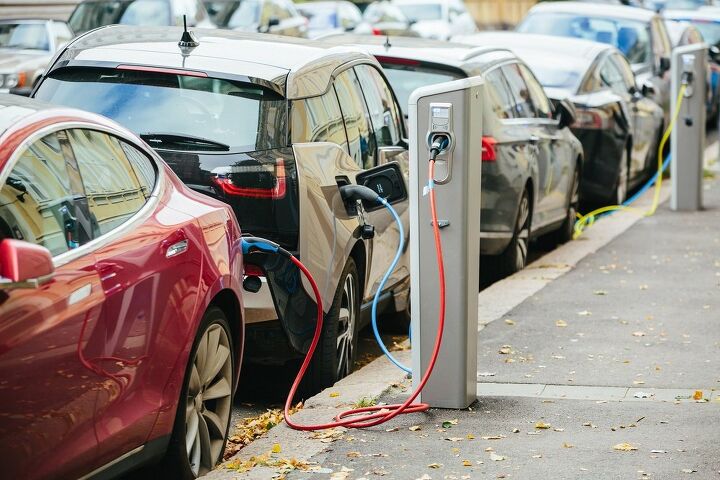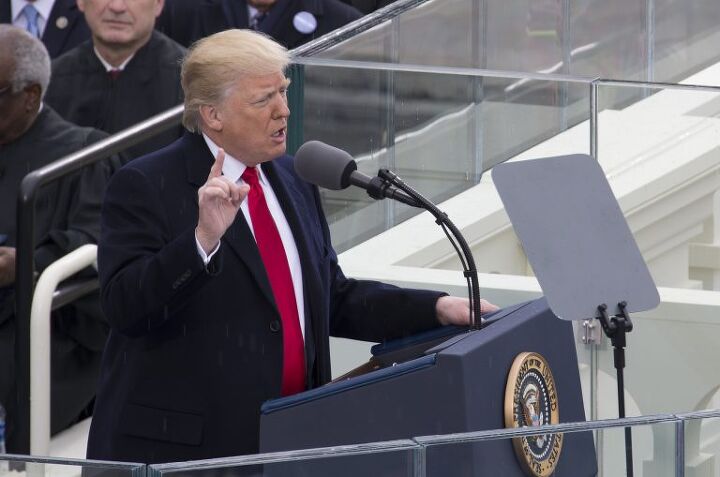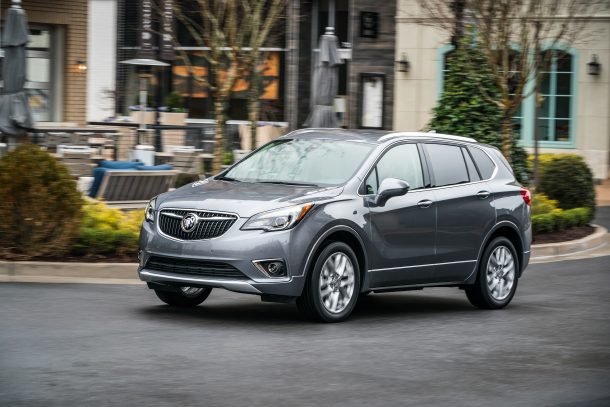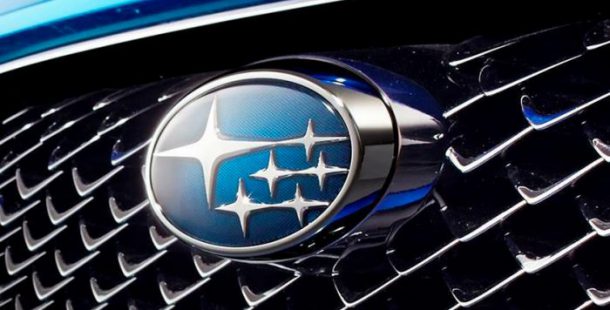#Taxes
Chicago Considers Congestion Charges, Starting With Uber/Lyft
Chicago is considering sticking ride-hailing services like Uber and Lyft with a new tax that would add a few bucks onto each ride. Mayor Lori Lightfoot has proposed a $40-million-per-year tax increase as part of a broader traffic plan modeled after London’s famous congestion fines. That means not all rides would be subject to the same fees, but each trip taken within the city would still cost a little extra.
While congestion charges are all the rage in Europe, they’re uncommon in the United States. New York City recently decided to financially penalize every driver taking a trip below 60th Street (something I’m not thrilled about), positioning Chicago as the second major metropolitan area in the U.S. to move forward on congestion fees. Lightfoot claims it’s a necessary first step “to improve mobility and further our goals of ensuring sustainable, affordable and reliable access to transportation options in every neighborhood.”
How Responsible Are EVs for Maintaining Our Automotive Infrastructure?
With electric-vehicle owners eligible for sizable tax breaks, and ineligible for federal fuel taxes, it often feels like they’re not pulling their weight when it comes to maintaining this great nation’s transportation infrastructure. However, feelings are sometimes wrong — when it feels like an Arby’s night, for example.
There are actually 26 states that presently impose fees upon EV owners and, according to Consumer Reports, 11 charge more than the amount drivers of similar, gas-powered cars pay in gas taxes, with 3 charging more than twice the average amount. Another dozen states are considering adding fees, with CR’s own research stipulating that 10 would require electrics to pay more than they would if they were powered by gasoline.
QOTD: Hit 'em Where They Drive?
As you read earlier this week, the state of Illinois wants motorists to pay up. Big time. A new proposal that stands a good chance of passing into law not only more than doubles the state’s gas tax, it would also hit electric vehicle drivers with an annual $1,000 fee — a bill for adding wear and tear to the state’s roads and bridges while depriving state coffers of sweet, sweet gas tax revenue.
Some EV drivers are not what you’d call “happy” about it. But are you?
Illinois EV Owners Face Steep New Fee, Rage Against the Machine
Like most states, Illinois hasn’t raised its gas tax in years, keeping it at 19 cents since the musically gifted year of 1990, and, like most states, Illinois needs cash for pressing infrastructure repairs. Illinois’ state gas tax joins a slew of other taxes, including income tax, that’s bundled into local pump prices, but one type of driver was able laugh at all the chumps lining up for dino juice.
The electric vehicle driver.
By virtue of their emissions-free powerplant, EV drivers side-step this area of taxation. Unfortunately for the Tesla owners of Cook County and other jurisdictions, those days may soon come to an end. A proposed law would see EV owners dinged $1,000 a year — their contribution to maintaining the roads and bridges their hefty EVs ply on a daily basis. As you’d expect, many are not happy.
Neither are conventional vehicle owners, however, as the proposal would more than double the state’s gas tax.
Report: Certain Canadians Getting Boned At the Gas Pump
Barely a day goes by when the TTAC chatroom doesn’t devolve into a discussion of the weird differences between the U.S. and Canada. Chris Tonn wants to take a Nissan Micra across Canada, eating various poutines along the way, while this writer drools over certain (unavailable) civil liberties offered just 45 minutes to his south. Vast gulfs in pricing and taxation usually spring up as topic fodder, too.
Given the amount of money yours truly forks over for gas, there’s additional drool reserved for U.S. pump prices. Various taxes heap, on average, an extra 38 cents on every liter of unleaded up here. That’s an extra $1.44 for each gallon, and the roads aren’t exactly paved in gold.
Now, imagine learning you’ve been paying way too much for three straight years.
Trade War Watch: Trump Rejects Auto Tariff Deal With Europe
Earlier this year, President Donald Trump took a renewed interest in European tariffs after deciding he didn’t like what he saw. He argued it was time for the United States to consider a fresh tax on vehicles manufactured in the European Union to level the playing field. “If the EU wants to further increase their already massive tariffs and barriers on U.S. companies doing business there, we will simply apply a tax on their cars which freely pour into the U.S.,” he wrote in March.
A few months later, America floated the ridiculous-sounding proposal of abolishing all automotive tariffs between the U.S. and EU. Surprisingly, Europe was highly receptive. German Chancellor Angela Merkel even directly addressed the issue by saying she would support lowering EU tariffs on U.S. car imports. The European Union now seems willing to pursue a zero-tariff solution on automobiles.
However, Trump has since changed his tune. The new rhetoric coming from the White House is that the deal, which was originally pitched by the U.S., is no longer good enough.
Eternal Underdog: Mitsubishi May Not Sell Enough Cars in the U.S. to Worry About Tariffs
While still an industrial giant on the global scene, Mitsubishi is a shadow of its former self in the United States. After leaning a bit too hard on its status as a value brand, annual deliveries went from about 346,000 units to just 58,000 between 2002 and 2012. Meaningful progress has been made since then, but the road to redemption has been a hard one.
The looming threat of tariffs isn’t making things any easier for Mitsubishi. The automaker doesn’t have a single production facility in the U.S., meaning it will receive the full force of whatever percentage is tacked onto the import fee. There is hope, however. Bizarrely, the brand’s biggest weakness (U.S. sales) is also its greatest strength when it comes to enduring import tariffs.
GM Places Gun Against the Head of the Chinese-made Buick Envision
We previously reported that General Motors was seeking an exemption from U.S. tariffs that could affect the domestic wellbeing of the Buick Envision, the brand’s Chinese-made utility vehicle positioned between the Encore and Enclave. At the time, GM hadn’t weighed in on if it would pull the model from the United States if it didn’t get a pass into the country.
Since then, General Motors President Dan Ammanm has said the exception is the only way the automaker sees itself being able to continue selling the model in America. The automaker confirmed that the Envision’s domestic sales are insufficient to rationalize U.S. production but noted GM needed the model to have a complete lineup against brands like Audi, Lexus, and Mercedes-Benz.
Mercedes-Benz… Seriously?
Get Out of China Free Card: GM Wants the Buick Envision to Get a Pass on Import Tariffs
General Motors wants an exemption from a 25 percent U.S. tariff for the Buick Envision, the Chinese-made sport utility positioned between the Encore and Enclave. On Thursday, the automaker said it filed the request on July 30th with the U.S. Trade Representative to exclude the model from the prospective Section 301 tariff on products shipped from China.
The Envision hasn’t been a strong seller in the United States. While it managed to move 41,040 units in 2017, this year is not on track to meet that number. Obviously, the model has had some troubles. Early reviews were unfavorable, often accusing the Envision of being a faux luxury vehicle with an overly ambitious price tag. However, the manufacturer has since dropped the price and updated the vehicle for the 2019 model year.
Unfortunately, enough damage was dealt in those first two years to make the new model look less appetizing to customers. It now holds the stigma of an overpriced, Chinese-made compact crossover that falls short just about everywhere. It needs time to rebuild its image after the refresh, and it won’t be able to manage that if it is taxed into oblivion.
BMW Raising Prices on American-made SUVs in China, Willing to Absorb Some Tariff Costs
BMW says it will hike the price of two utility vehicles in China to cope with the additional cost of tariffs on U.S. car imports in the world’s biggest vehicle market. The models are the X5 and X6, both manufactured in South Carolina.
This news comes after China increased import duties on all automobiles from the United States to 40 percent earlier this month. China had previously said it would reduce its already high vehicle tariffs across the board as a sign of good faith — which it did, while simultaneously slapping new punitive tariffs on the U.S. Meanwhile, President Donald Trump has postponed prospective automotive tariffs while negotiations take place with Europe.
If you needed proof that a trade war is on and were wondering how automakers would handle it, look no further. BMW says it will have to raise the models’ Chinese MSRP by 4 percent to 7 percent. It’s a relatively modest increase considering how utterly massive the new import fees are, which indicates a willingness from the automaker to absorb some of the associated costs just to remain in the market. It’s something BMW is not alone in doing, and there could be a valuable lesson to be learned from that.
Justice Department Wants Refund From Sheriff Who Bought a Dodge Charger Hellcat
The U.S. Department of Justice is demanding that Georgia Sheriff Butch Conway reimburse the government for his procurement of a 707-horsepower Dodge Charger Hellcat, which it does not believe falls under the umbrella of reasonable purchases for a police department.
However, the DOJ isn’t questioning whether the department could make use of such a vehicle, as the federal government already approved its purchase. It just isn’t sure that Conway is being responsible with it, since it sounds like the Gwinnett Country Sheriff may be using it as his daily driver.
Trade War Watch: As Commerce Secretary Ponders Auto Tariffs During D.C. Hearing, Automakers Call Out the Troops
As the United States considers imposing new tariffs of up to 25 percent on imported automobiles and parts, the industry has rallied together to stand against the proposal. Manufacturers already made individual cases for themselves and are now dropping very bleak-sounding industry projections on the U.S. Commerce Department in the hopes of changing the administration’s mind.
However, President Donald Trump continues to promote the imposition of tariffs to force a sort of economic justice. For years, China’s protectionist policies regarding automobiles forced American manufacturers to build inside its borders and partner with Chinese firms for years. That’s something Trump claims could be a national security risk. China also recently upped its tax on American-made autos to 40 percent, shortly after promising to lower them. Meanwhile, Europe still holds a consistently higher tariffs on imported cars than the U.S., except for light trucks.
Commerce Secretary Wilbur Ross seems aware that China may have gamed the system in its favor, but appears less convinced that it’s a matter of national security. On Thursday, during a hearing on the probe into the industry, he said it was “too early” to say what the United States would do. Meanwhile, auto groups continue to make their terrifying case. (There’s also quite a bit of rolling PR in downtown D.C. today, as you’ll see below.)
New Import Duties Could Body Slam Subaru
Subaru is a once-tiny manufacturer that grew in leaps and bounds thanks to high demand from the United States. The automaker is the eighth best-selling brand in the region, despite being a scrappy upstart, and has managed multiply its volume many since the 1990s. But, like any business loaded into a cannon with the word “success” emblazoned on the side, it can’t continue streaming through the clouds indefinitely without encountering some turbulence.
Subaru may be in for troubled times.
U.S. Gives German Auto Industry Zero-tariff Proposal, Merkel Receptive
The fresh threat of new automotive and parts tariffs from the United States has everyone up in arms. We recently published an exhaustive list of comments manufacturers and local governments made to the U.S. Commerce Department. They, along with suppliers, universally despise the idea and are doing everything in their power to convince the Trump administration to reconsider. Many are even discussing the grim prospect of layoffs and suspending investments.
However, the president remained firm on doing whatever it takes to bolster domestic production and U.S. automotive exports while the world tried to make sense of his strategy. Was this a madman playing hardball and gambling with the industry’s future, or the work of a master dealmaker forcing others to come to the table? Perhaps a little of both?
Earlier this week, the U.S. ambassador to Germany told German car executives that President Donald Trump would suspend threats to impose tariffs on cars imported from the European Union if the European Union lifts duties on U.S. cars. But the wildest part of all of this is that both the automakers and the German government seem to be in support of it.
Trade War Watch: Mazda Joins Toyota in Condemning U.S. Tariff Proposals
Automakers are not thrilled with the White House’s current interest in automotive tariffs. With factories scattered across the globe, no major manufacturer would go untouched by the proposed increases in import duties or the retaliatory tariffs foreign governments may issue in response.
There’s a lot to lose from a financial perspective. According to a recent analysis from Evercore ISI, Fiat Chrysler would take an annual hit of $866 million if the United States placed a 25-percent import tariff on cars. Considering that other automakers stand to lose at least that much, it’s unsurprising they’ve begun raising their corporate voices over the matter.
Granted, the FCA example is a worst-case scenario for that particular brand, but even a lesser tariff would see a profit loss of hundreds of millions. For an automaker like Mazda, the loss would be far worse.






























Recent Comments